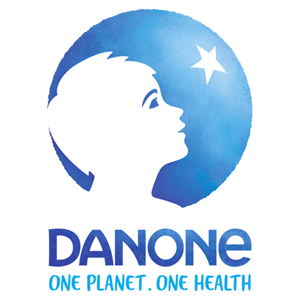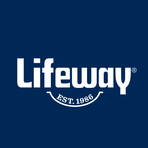Lifeway Foods Stands Firm Against Danone's Takeover Bid
November 10, 2024, 9:33 am
In the world of business, few things are as contentious as a takeover bid. It’s a high-stakes game of chess, where each move can change the landscape. Lifeway Foods recently rejected a $283 million offer from Danone, a long-time shareholder. This decision is more than just a rejection; it’s a statement. Lifeway believes the offer undervalues its potential and is not in the best interest of its stakeholders.
Lifeway Foods, known for its kefir and probiotic products, has been on a growth trajectory. The company reported record annual sales of $160 million in 2023, marking a 13% increase from the previous year. This success is not a fluke. Lifeway has posted 19 consecutive quarters of year-over-year growth. Consumers are increasingly turning to kefir for its health benefits, particularly for digestive issues. This trend has positioned Lifeway as a key player in the health food market.
Danone, which owns 23.4% of Lifeway’s shares, likely saw the potential for a strategic acquisition. However, Lifeway’s board deemed the offer “opportunistic.” They believe it does not reflect the company’s true value. In response, Lifeway has adopted a limited-duration shareholder rights plan. This move is a defensive strategy, often referred to as a “poison pill.” It aims to make it more difficult and expensive for any entity to acquire a significant stake in the company.
The rejection of Danone’s bid is not surprising. Companies often resist takeover offers, hoping to coax a higher bid or attract other interested parties. However, with Danone already holding a substantial share, the likelihood of another bidder entering the fray is slim. Lifeway’s focus remains on expanding its product line and increasing market penetration. The company aims to bring kefir to more households while exploring adjacent categories.
This situation reflects a broader trend in the food and beverage industry. Mergers and acquisitions (M&A) activity has been relatively quiet in recent years. However, recent reports indicate that this trend may be shifting. CoBank notes that M&A activity is gaining momentum, driven by changing consumer preferences and lower interest rates. Executives are looking to streamline their portfolios, which could lead to increased acquisition activity.
Despite the uptick in M&A discussions, the majority of deals have been smaller in scale. Companies are focusing on acquiring smaller firms that can enhance their growth. This strategy allows larger companies to bolster their offerings without the complexities of integrating a massive acquisition. The food and beverage sector is ripe for consolidation, particularly in areas like plant-based alternatives and better-for-you snacks.
Lifeway’s rejection of Danone’s offer highlights the complexities of the current market. Companies are navigating a landscape where consumer preferences are shifting rapidly. Health-conscious consumers are driving demand for products that promote wellness. This trend has made companies like Lifeway attractive targets for larger players looking to expand their portfolios.
As Lifeway continues to grow, it faces the challenge of maintaining its momentum. The company’s strategic plan focuses on leveraging its strengths in the probiotic market. By expanding its product offerings and reaching new consumers, Lifeway aims to solidify its position in the industry. The rejection of Danone’s bid is a clear indication that Lifeway is not willing to settle for less than its worth.
In the grand scheme of things, Lifeway’s decision is a reminder of the importance of valuation in the business world. Companies must understand their worth and be prepared to defend it. The market is full of opportunistic bids, but not all offers are created equal. Lifeway’s board has made it clear that they believe in the company’s potential and are committed to maximizing shareholder value.
The future remains uncertain. Will Danone return with a higher offer? Or will Lifeway continue to thrive independently? Only time will tell. However, one thing is certain: Lifeway Foods is not just a player in the market; it’s a contender. The company’s rejection of Danone’s bid is a bold move, signaling its intent to chart its own course in the competitive landscape of food and beverage.
In conclusion, Lifeway Foods stands at a crossroads. The rejection of Danone’s takeover bid is a pivotal moment. It reflects the company’s confidence in its growth strategy and its commitment to its stakeholders. As the food and beverage industry evolves, Lifeway is poised to capitalize on emerging trends. The company’s focus on health and wellness aligns with consumer demands, positioning it for continued success. In a world where every decision counts, Lifeway has chosen to play its own game.
Lifeway Foods, known for its kefir and probiotic products, has been on a growth trajectory. The company reported record annual sales of $160 million in 2023, marking a 13% increase from the previous year. This success is not a fluke. Lifeway has posted 19 consecutive quarters of year-over-year growth. Consumers are increasingly turning to kefir for its health benefits, particularly for digestive issues. This trend has positioned Lifeway as a key player in the health food market.
Danone, which owns 23.4% of Lifeway’s shares, likely saw the potential for a strategic acquisition. However, Lifeway’s board deemed the offer “opportunistic.” They believe it does not reflect the company’s true value. In response, Lifeway has adopted a limited-duration shareholder rights plan. This move is a defensive strategy, often referred to as a “poison pill.” It aims to make it more difficult and expensive for any entity to acquire a significant stake in the company.
The rejection of Danone’s bid is not surprising. Companies often resist takeover offers, hoping to coax a higher bid or attract other interested parties. However, with Danone already holding a substantial share, the likelihood of another bidder entering the fray is slim. Lifeway’s focus remains on expanding its product line and increasing market penetration. The company aims to bring kefir to more households while exploring adjacent categories.
This situation reflects a broader trend in the food and beverage industry. Mergers and acquisitions (M&A) activity has been relatively quiet in recent years. However, recent reports indicate that this trend may be shifting. CoBank notes that M&A activity is gaining momentum, driven by changing consumer preferences and lower interest rates. Executives are looking to streamline their portfolios, which could lead to increased acquisition activity.
Despite the uptick in M&A discussions, the majority of deals have been smaller in scale. Companies are focusing on acquiring smaller firms that can enhance their growth. This strategy allows larger companies to bolster their offerings without the complexities of integrating a massive acquisition. The food and beverage sector is ripe for consolidation, particularly in areas like plant-based alternatives and better-for-you snacks.
Lifeway’s rejection of Danone’s offer highlights the complexities of the current market. Companies are navigating a landscape where consumer preferences are shifting rapidly. Health-conscious consumers are driving demand for products that promote wellness. This trend has made companies like Lifeway attractive targets for larger players looking to expand their portfolios.
As Lifeway continues to grow, it faces the challenge of maintaining its momentum. The company’s strategic plan focuses on leveraging its strengths in the probiotic market. By expanding its product offerings and reaching new consumers, Lifeway aims to solidify its position in the industry. The rejection of Danone’s bid is a clear indication that Lifeway is not willing to settle for less than its worth.
In the grand scheme of things, Lifeway’s decision is a reminder of the importance of valuation in the business world. Companies must understand their worth and be prepared to defend it. The market is full of opportunistic bids, but not all offers are created equal. Lifeway’s board has made it clear that they believe in the company’s potential and are committed to maximizing shareholder value.
The future remains uncertain. Will Danone return with a higher offer? Or will Lifeway continue to thrive independently? Only time will tell. However, one thing is certain: Lifeway Foods is not just a player in the market; it’s a contender. The company’s rejection of Danone’s bid is a bold move, signaling its intent to chart its own course in the competitive landscape of food and beverage.
In conclusion, Lifeway Foods stands at a crossroads. The rejection of Danone’s takeover bid is a pivotal moment. It reflects the company’s confidence in its growth strategy and its commitment to its stakeholders. As the food and beverage industry evolves, Lifeway is poised to capitalize on emerging trends. The company’s focus on health and wellness aligns with consumer demands, positioning it for continued success. In a world where every decision counts, Lifeway has chosen to play its own game.


